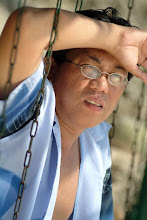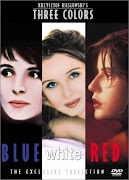 ON THE MATTER of my mother tongue, there's no ifs and buts. Either I wag it with the earnestness of the dispossesed rabid against the insidious infestation of forgetting, a betrayal against my birthright. Or, be struck mute by the blinding flash and haze of a colonized consciousness.
ON THE MATTER of my mother tongue, there's no ifs and buts. Either I wag it with the earnestness of the dispossesed rabid against the insidious infestation of forgetting, a betrayal against my birthright. Or, be struck mute by the blinding flash and haze of a colonized consciousness.That I also write in English is no less a privilege, yes. Yet it also cast upon this Bisdak dog the added burden of responsibity to be steadfast with the umbilical words of a vernacular on the verge of extinction. Unrelenting, after all, are the inroads of globalization and an unenlightened state policy that spawns negligence, niggardly attention and a culturally decentered outlook of this generation of native speakers.
Pastilan intawon, pagka-serious! Maybe because Yoyoy Villame is dead, and Max Surban is no longer as loud as the cat in heat on the roof.
Hereunder are variations on the Bisdak theme I wrote for my regular column, "So To Speak," in the op-ed pages of Sun.Star Cebu:
La Vida Local and Being Vocal
/Sun.Star Cebu, 8 April 2008/
KIDS say the darndest thing, concedes an eponymous American television series several years ago. But what comes out of the mouths of babes does not always disarm adults with amusement. Bile drips and foams as well from their milk-smacking lips.
Look, for instance, at a clique of child rockers called the Naked Brothers Band. It might as well be a bomb's detonation, what they revealed at the recent 2008 Kids' Choice Awards over the cable channel Nickelodeon. Simply piercing like shrapnel in bare skin, the lyrics of their latest hit: "And I'm really tired of being treated/ Like a fool./ I don't want to go to school…You always tell me to stop/ To stop comin' around/ I can't even make/Make make no sound…."
That struck a cringe-worthy chord, indeed, with the alleged conspiracy of third-grade classmates out "to harm or kill their teacher with a serrated steak knife." Nine pupils at Carter Elementary School in Georgia could be facing "unruly child" charges after they reportedly plotted revenge against their teacher who disciplined a girl for "standing on a chair." Did she say something that reeked of impudence, the tactless assertion of innocence?
 As a parent, whittling down the tongues of my two boys into timidity would be no better than bearing my neck down the chopboard. Mince no words, and mean it with due respect. Like, well, saying I look like a hobgoblin and hugging me anyway.
As a parent, whittling down the tongues of my two boys into timidity would be no better than bearing my neck down the chopboard. Mince no words, and mean it with due respect. Like, well, saying I look like a hobgoblin and hugging me anyway.May they grow up to be outspoken but neither intimidating nor insincere. And, yes, to stay true and rooted—even if their vocabulary branches out to the lush forest of other languages—to their mother tongue.
So far, it warms the cockles inside my chest to hear my eldest son Gabriel Ollivan, a minority among his white classmates in preschool, asking ardently, "Unsa'y Binisaya…?" for some things he absorbs from his teacher and his books utterly awash with information and expressions of all things American. Rest assured I do as well when Golli's younger brother Raphael Gandalf, scared of "agta" and "ungo" lurking in the thicket of his two-year-old imagination, easily takes comfort with a bedtime browsing of Mother Goose rhymes no more than the lull of lisping into a medley of native memory about, among others, the "alimango sa suba, gibantog nga dili makuha" and "balay ko sa langit nagasidlak-sidlak luyo sa panganod…." Or the wisdom of "bugsay, bugsay, kiling-kiling dyutay...sa barotong gamay."
Rock and bring it on, Bisdak! Thus I have only the best wishes for the brainchild of Cebu Provincial Board (PB) member Victor Maambong who recently sponsored a resolution for the Department of Education to prescribe "Sugbuanong Binisaya as the indispensable bridge language in teaching English and Filipino" in grade and high schools.
Noting the dismal results of the national achievement tests and taking the cue of scientific studies, Maambong's resolution avers: "The use of the first language to bridge English and Filipino will facilitate a more efficient cognitive process in the language development of our students…," who, certainly, will find it easier to sway along the tune of Naked Brothers Band's "I Don't Want To Go To School," if they fall in the gap or in the shadow between the idea and the act.
Getting a failing grade deserves better, indeed, than the silence of the dumb. Or the stench of cliché while invoking, "Shit," if not the four-letter word. As a matter of fact, they can be more emphatic by exclaiming, "Hinampak!"
Watch Your Mouth
/Sun.Star Cebu, 12 February 2008/
"HE SAID a bad word." So went the accusation of a little Fil-Am boy whose twang-laced tongue has been irradiated with a smattering of Cebuano words from his constant exposure at playtime with my five-year-old son. "He called me stupid, mom."
 Even if there are times I won't begrudge "stupid" as an apt adjective for me, my wife can swear we never use that word at home, although I'm fond of ejaculating, "Bulay-og baya!," if anything went out of whack. Now, where did my son get the word that whipped his friend into such distress? My disconsolate wife and I learned later that the infestation in my son's vocabulary was the latest he cottoned onto from his American classmates in pre-kindergarten.
Even if there are times I won't begrudge "stupid" as an apt adjective for me, my wife can swear we never use that word at home, although I'm fond of ejaculating, "Bulay-og baya!," if anything went out of whack. Now, where did my son get the word that whipped his friend into such distress? My disconsolate wife and I learned later that the infestation in my son's vocabulary was the latest he cottoned onto from his American classmates in pre-kindergarten.But what alarmed me, more than the likelihood that I might have spawned a ruffian who would grow up calling a spade a blunt spade, was that he didn't call his friend "amaw." Or, if he were a sharper chip off his old block, he could have stumped even Dennis the Menace with this snarl: "Hungog!"
What other homegrown words, even the hair-raising ones, would soon be watered down into the milk and honey of American speech?
When we flew into the heartland of America nearly a year ago, our baggage bristled with a stack utterly Bisdak—a Cebuano bible, a Jesuit-authored English-Visayan dictionary, booklets from the Cebuano Studies Center featuring a trove of riddles, proverbs, folktales and native songs as well as a slew of CDs (the discography of Yoyoy Villame and Max Surban, three volumes of Visayan Greatest Hits by various artists, Susan Fuentes' "Awitnong Bahandi" album and "Sine-sine" by Missing Filemon.) These, I hoped, would suffice to slam the intrusive clangor of dislocation out the door.
But the new culture, with all its colors bleaching into the televised cartoons, has been unrelenting in weaning my two kids away from their mother tongue. Even if my wife and I have made it sacrosanct for our relocated household to be steeped in the stew of our vernacular, not a day passes without my youngest son blurting out, "No way!"
Out loud, such obstinacy echoes how I feel about one Cebuano lawmaker whose brainchild in Congress now braces like a bulldozer against the dwindling wilderness of indigenous languages. If Rep. Eduardo R. Gullas (Cebu, 1st district) will have his way with House Bill 305—set to revive English as the mandatory language for teaching in all school levels—superseded becomes the Department of Education order implementing the bilingual teaching policy. Which has stunted the potentials of students to compete in the global economy, according to Gullas. His bill would correct the defects of the current education program where "learning two languages (English and Pilipino) is too much for young Filipino learners, especially the non-Tagalog speaking children." But don't impressionable minds work like a sponge? Or, to begin with, must the bilingual system be thrown with the bathwater because it has been childishly conceived and carried out by a way of teaching slightly better than baby-talk?
 If the national language — predominantly Tagalog — languishes, where does that leave the rest of the regional languages? Must progress be paid by selling what little remains of oral heritage down the river?
If the national language — predominantly Tagalog — languishes, where does that leave the rest of the regional languages? Must progress be paid by selling what little remains of oral heritage down the river?First things first, suggests a study recently printed in the Jakarta Post: "Students learn English or acquire a second language more rapidly and effectively if they maintain and develop their proficiency in their mother tongue." Swords, no more than the tongue's artillery of words, are better if they are double-edged.
Next time my son said "stupid" I would know for whom it's best suited. And I swear to add an expletive, crispier in Cebuano, for a deadlier effect.

























































1 comment:
nice funny christmas pictures > (:
Post a Comment